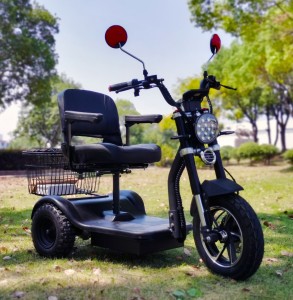As individuals age, they often face a myriad of physical challenges, one of the most significant being mobility loss. This decline in physical capability can stem from various factors, including chronic illnesses, injuries, or simply the natural aging process. While the physical implications of mobility loss are well-documented, the emotional and psychological impacts on the elderly are equally profound and deserve attention. Understanding how mobility loss affects the emotional well-being of older adults is crucial for caregivers, family members, and healthcare professionals.
The Connection Between Mobility and Independence
For many elderly individuals, mobility is closely tied to their sense of independence. The ability to move freely—whether it’s walking to the kitchen, going for a stroll in the park, or driving to the grocery store—provides a sense of autonomy and control over one’s life. When mobility is compromised, this independence is often stripped away, leading to feelings of helplessness and frustration.
The loss of independence can trigger a cascade of emotional responses. Many elderly individuals may feel like they are a burden to their families or caregivers, leading to feelings of guilt and shame. This emotional turmoil can exacerbate feelings of isolation, as they may withdraw from social activities they once enjoyed, further diminishing their quality of life.
Feelings of Isolation and Loneliness
Mobility loss can significantly contribute to social isolation. As elderly individuals find it increasingly difficult to engage in social activities, they may become withdrawn. This withdrawal can be both a physical and emotional response; physically, they may be unable to attend gatherings or visit friends, while emotionally, they may feel disconnected from the world around them.
Loneliness is a pervasive issue among the elderly, and mobility loss can intensify this feeling. Studies have shown that social isolation can lead to severe emotional consequences, including depression and anxiety. The elderly may feel that they have lost their social networks, leading to a sense of abandonment and despair. This emotional state can create a vicious cycle, where the individual’s mental health deteriorates, further impacting their physical health and mobility.
Depression and Anxiety
The emotional impact of mobility loss can manifest in various mental health issues, with depression and anxiety being the most common. The inability to engage in activities that once brought joy can lead to a sense of hopelessness. For many elderly individuals, the prospect of being unable to participate in family gatherings, hobbies, or even simple daily tasks can be overwhelming.
Depression in the elderly is often underdiagnosed and undertreated. Symptoms may not always present in the typical manner; instead of expressing sadness, an elderly person may exhibit irritability, fatigue, or a lack of interest in activities they once enjoyed. Anxiety can also manifest as a fear of falling or a fear of being unable to care for oneself, further complicating the emotional landscape of those experiencing mobility loss.
Coping Mechanisms and Support Systems
Recognizing the emotional impact of mobility loss is the first step toward addressing it. Caregivers and family members play a crucial role in providing support and understanding. Encouraging open communication about feelings and fears can help elderly individuals process their emotions and feel less isolated.
Engaging in activities that promote mental well-being is also essential. This can include encouraging participation in social activities, even if they are virtual, or finding new hobbies that can be enjoyed from home. Creative outlets, such as art or music, can provide a therapeutic escape and help alleviate feelings of depression and anxiety.
Support groups can also be beneficial. Connecting with others who are experiencing similar challenges can foster a sense of community and understanding. These groups can provide a safe space for individuals to share their experiences and coping strategies, reducing feelings of isolation.
The Role of Physical Therapy and Rehabilitation
Physical therapy and rehabilitation can play a significant role in addressing mobility loss and its emotional impacts. Engaging in physical therapy not only helps improve mobility but can also boost self-esteem and confidence. As elderly individuals regain some of their physical capabilities, they may experience a renewed sense of independence, which can positively influence their emotional state.
Moreover, physical therapists can provide education on safe mobility practices, helping to alleviate fears associated with falling or injury. This knowledge can empower elderly individuals, allowing them to navigate their environments with greater confidence.
The Importance of Mental Health Awareness
It is crucial for caregivers, family members, and healthcare professionals to be aware of the emotional impacts of mobility loss. Regular mental health screenings can help identify issues such as depression and anxiety early on, allowing for timely intervention. Mental health support should be integrated into the care plans of elderly individuals experiencing mobility loss.
Encouraging a holistic approach to health that includes both physical and emotional well-being can lead to better outcomes for elderly individuals. This approach recognizes that mobility loss is not just a physical issue but a multifaceted challenge that affects all aspects of an individual’s life.
Conclusion
Mobility loss in the elderly is a significant issue that extends beyond physical limitations. The emotional impacts—ranging from feelings of isolation and depression to anxiety and loss of independence—are profound and can significantly affect the quality of life. By understanding these emotional challenges, caregivers, family members, and healthcare professionals can provide better support and resources to help elderly individuals navigate this difficult transition.
Promoting open communication, encouraging social engagement, and integrating mental health support into care plans are essential steps in addressing the emotional ramifications of mobility loss. As society continues to age, it is imperative that we prioritize the emotional well-being of our elderly population, ensuring they feel valued, connected, and empowered despite the challenges they may face.
Post time: Nov-13-2024



